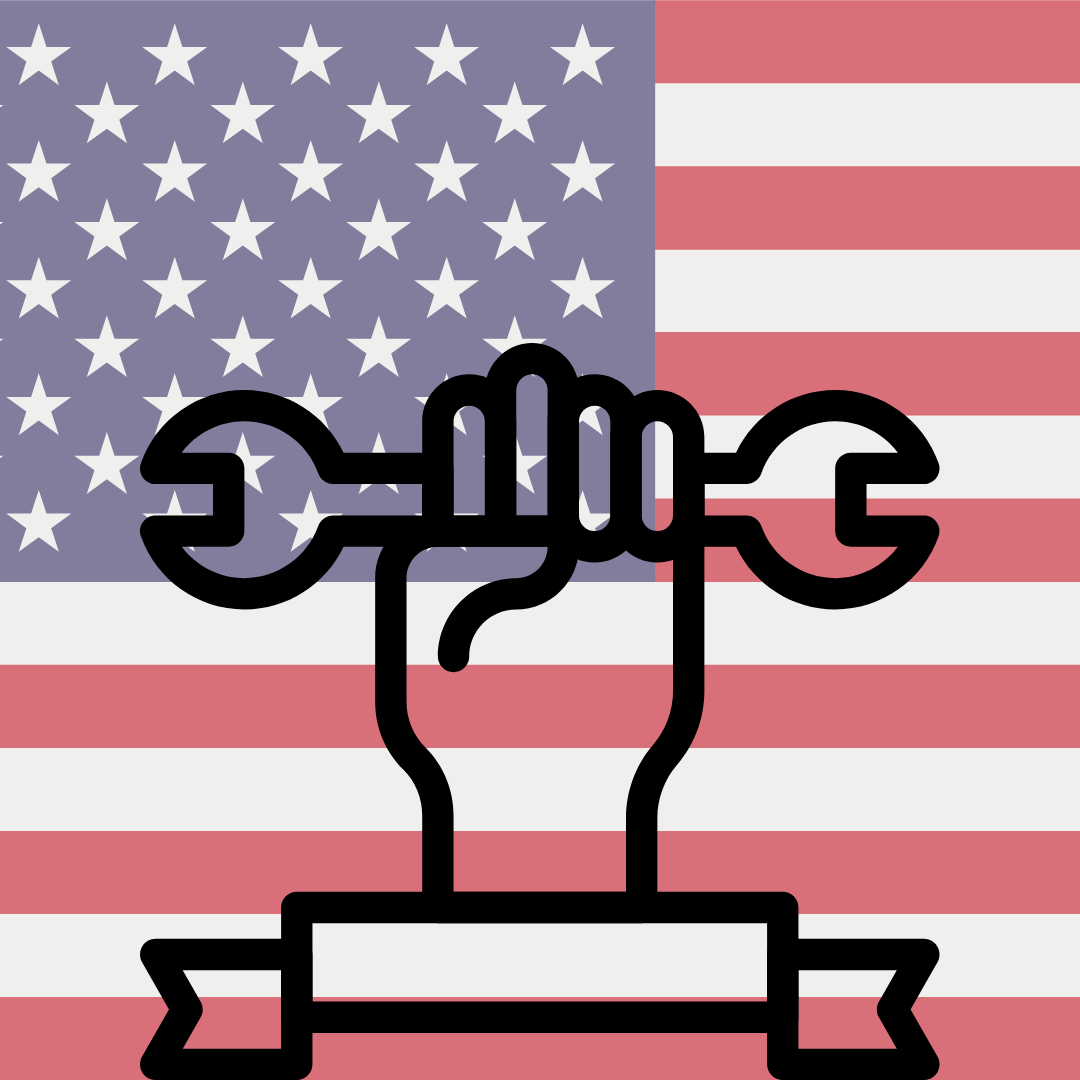This election, America’s largest and most diverse union, the International Brotherhood of Teamsters, has decided not to endorse a candidate and stay neutral. This is breaking their tradition of backing every Democratic presidential nominee since Bill Clinton, departing from major unions like the American Federation of Labor-Congress of Industrial Organizations (AFL-CIO) and United Auto Workers (UAW) supporting the Harris-Walz ticket. Teamsters president Sean O’Brien, who spoke at the Republican National Convention (RNC) and was snubbed by the Democratic National Convention (DNC), cited a lack of commitments from both candidates for this decision.
Unions have, for most of recent American history, been a cornerstone of the Democratic Party’s support, providing crucial votes and grassroots organizing. While the Teamsters union, among others, did support Republicans like former Presidents Richard Nixon and Ronald Reagan in the past (largely to gain concessions from a predetermined winner), a strong Union-Dem alliance dates back to the New Deal era, with unions playing a pivotal role in mobilizing working-class voters. The AFL-CIO, representing 12.5 million workers, endorsed Harris-Walz, emphasizing their pro-labor stance. The UAW’s endorsement comes with strong rhetoric from its president, Shawn Fain. At the DNC, Fain denounced former President Donald Trump by wearing a “Trump is a scab” shirt, declaring, “I can’t look at Donald Trump and see myself.”
O’Brien’s strategy of attempting to “court” both parties into pro-labor policies ignores the stark reality of the Republican Party’s past and present anti-labor stance. O’Brien’s RNC speech, criticizing big business’ “war against American workers,” failed to acknowledge the GOP’s long-standing union opposition in line with those same “big business” interests. Republicans have consistently opposed pro-worker legislation. They voted against raising the minimum wage, supported the hilariously named “right-to-work” laws that weaken unions and attempted to strip funding from federal agencies enforcing labor laws. The GOP has also worked to remove or weaken crucial worker health and safety regulations. Even the recent Project 2025 blueprint for a Republican administration outlines plans that could strip millions of workers of overtime pay, make union organizing even more difficult and roll back health and safety protections.
O’Brien’s neutral stance equates both parties’ positions on labor, despite clear differences. I don’t disagree with the fact that the Democratic Party is no messiah for workers’ rights. However, the Democrats have supported pro-labor legislation like the Protecting the Right to Organize Act (PRO Act), which Republicans have generally opposed. As Fain noted with respect to O’Brien’s RNC appearance, “I give him credit for going into the belly of the beast and actually speaking about working class issues, but I don’t really think it swayed anybody.”
The Teamsters’ internal polling shows a stark disconnect between union leadership (of which many locals backed Vice President Kamala Harris after the neutrality announcement) and rank-and-file members. Initially, a straw poll conducted from April to July 2024 in union halls showed President Joe Biden leading Trump, 44.3% to 36.3%. A subsequent poll from July to September, following the Democrats’ candidate swap to Harris, revealed a dramatic shift: Trump garnered 59.6% support compared to Harris’ 34%. A final phone survey in September confirmed this trend, showing 58% support for Trump and only 31% for Harris.
This is emphasized by the contrast with other unions like the UAW, AFL-CIO and the Communication Workers of America, affiliated with several Fordham University unions, which have all backed Harris. This divergence reflects broader challenges within the labor movement and the American electorate at large with respect to rank-and-file union members who are more polarized, especially when so much of current American discourse is baked around various “culture war” battlefields.
In races where a state’s winners are chosen by under tens of thousands of votes, O’Brien’s call could significantly impact the election, particularly in key swing states with strong Teamsters’ presences like Michigan, Pennsylvania and Wisconsin. The absence of Teamster support for the Democratic ticket could potentially tip the balance in Trump’s favor.
This decision also raises broader questions about labor’s political influence. By not endorsing a candidate, the Teamsters risk diminishing their voice in shaping labor policy. This comes at a critical time when issues like the PRO Act and right-to-work laws are at the forefront of the labor movement’s agenda. As other unions like the UAW actively campaign for Harris, the Teamsters’ neutral position could create tension and disunity among labor organizations, potentially weakening their collective bargaining power of American Union labor at large.
Democrats face challenges in appealing to the working-class electorate. The party struggles to effectively counter cultural issues that Republicans exploit, such as the false narrative of immigration taking jobs away and working against voters blaming Democrats for inflation, regardless of the administration’s actual culpability. The party ought to address economic concerns more staunchly to supersede “cultural issues” that resonate with union members. This approach could help bridge the growing gap between party leadership and rank-and-file workers, potentially swaying union members towards supporting Trump.
The Teamsters’ decision underscores the complexities facing the labor movement in the current political climate. While O’Brien may think neutrality seems like a safe middle ground for his Teamsters, it risks leaving workers without a strong voice in a critical election, with very clear disparities on labor policy on the table. As the campaign progresses, leaders must carefully consider how best to advocate for their members while navigating a polarized political landscape within their own coalitions.
Andrew McDonald, FCRH ’26, is a history and political science double major from Sacramento, Calif.










































































































































































































